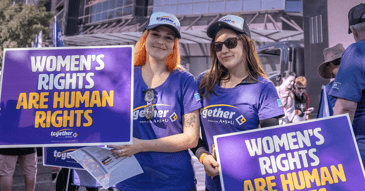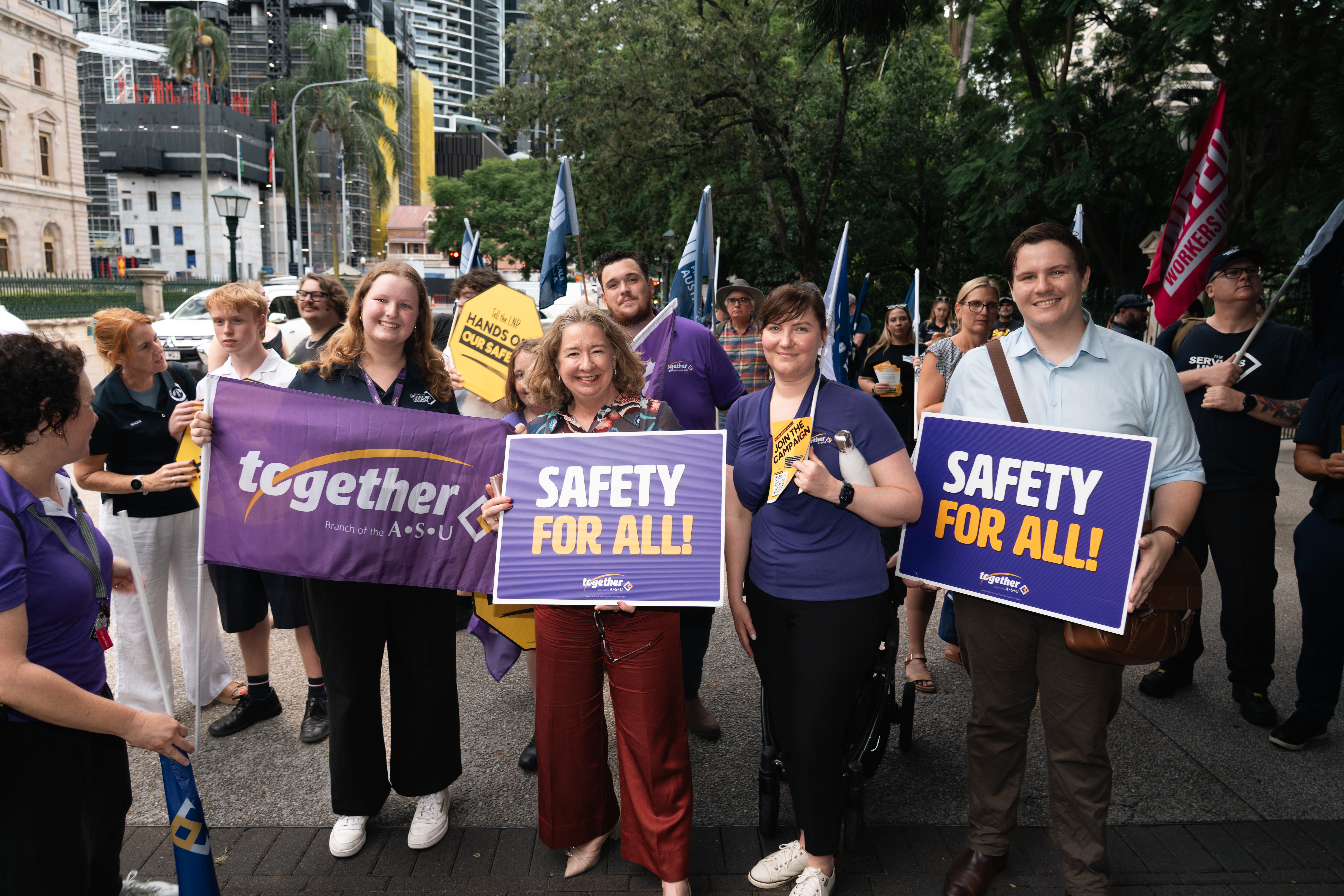Together News
Industrial news updates from Together
ASU Members Take the Fight for WFH Rights to the FWC
Feb 10, 2026 9:34:56 AM

Union office holiday closure information
Dec 22, 2025 10:50:02 AM

Notice of Protected Action Ballot – EB11, Education, Corrections, HPDO
Aug 15, 2025 3:30:11 PM

Together Union acknowledges the tragic death of Lauren Ingrid Flanigan
Jun 4, 2025 2:47:09 PM
-1.png?width=365&name=Untitled%20design%20(2)-1.png)
-1.png?width=365&name=Untitled%20design%20(2)-1.png) Child Protection Needs Investment and Action - Not Just Another Review
Jun 2, 2025 3:32:44 PM
Child Protection Needs Investment and Action - Not Just Another Review
Jun 2, 2025 3:32:44 PM
 Together Union supports the trans community.
Mar 12, 2025 3:57:01 PM
Together Union supports the trans community.
Mar 12, 2025 3:57:01 PM
 Happy International Women's Day 2025!
Mar 8, 2025 9:00:00 AM
Happy International Women's Day 2025!
Mar 8, 2025 9:00:00 AM
 Information for members affected by current weather events in South East Queensland.
Mar 4, 2025 2:30:00 PM
Information for members affected by current weather events in South East Queensland.
Mar 4, 2025 2:30:00 PM
 What a Dutton-led government could mean for Queensland Workers
Mar 1, 2025 9:00:00 AM
What a Dutton-led government could mean for Queensland Workers
Mar 1, 2025 9:00:00 AM
